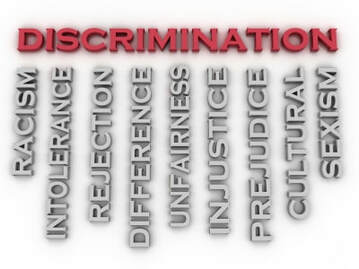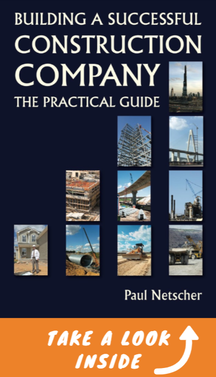 Image courtesy of David Castillo Dominici at FreeDigitalPhotos.net Image courtesy of David Castillo Dominici at FreeDigitalPhotos.net We often focus on the way people dress. Sure being dressed appropriately does show respect. But, does the way you dress really reflect the talents, skills and work ethics that you can bring to a company. There are even some who won’t offer a person a job because they have weird hairstyles, tattoos or dress differently. Indeed, I was surprised to hear a few years back that because I have a beard it was seen as reason not to promote me – now I know I have many shortcomings which could potentially be held against me, but I never considered having a beard was something that in anyway impacted the way I did my work! The other night I was watching a television program where a partially disabled person had been searching for a job for eight years. Another had been in prison and four years after being released nobody was prepared to offer her a job. They were desperate for a job. Was a partial disability, or a prison sentence enough to condemn them to never having a full time job? We all take our preconceptions with us. The way we were brought up, the environment we grew up in, our past experiences, and of course the people we associate with all contribute to the way we act and operate. We are all guilty of being racist to some degree. We often talk about people in terms of their nationality, country of origin, gender, colour or ethnicity. People in constructionIn construction we’re faced with a melting pot of people of different colours, from different nations, different cultures, varying economic backgrounds and with different levels of education. When we employ people on our construction projects, or promote people, or award salary increases or bonuses, how many of these decisions are made completely without bias or regard to the person’s appearance? It’s easy to get into the trap of certain nationalities being more suited to a specific job – a scaffolder, ironman or carpenter. Often these nationalities are given a label in jest, and we laugh, yet somewhere in the back of our mind this label often sticks. Unfortunately, we’re all often complicit to discrimination in some way, whether it’s overlooking lewd comments, ignoring jokes made at the expense of someone, or agreeing and accepting decisions made by others which we know are wrong. Why can’t we simply accept that we are all different, and that at the end of the day, having the right person for our construction projects and our company should be at the forefront of our decisions. Construction is a very gender biased industry, with few women. Somehow it’s just accepted that women aren’t suited. Why? I’ve probably been complicit in this with, I’m ashamed to say, few women employed on my projects. I was brought up in a country with legislated race segregation. This crippled the country and we had to import skilled construction people from other countries because a large section of our population wasn’t allowed to fill these positions. When things changed I was one of the first to provide equal opportunities to those working on my construction projects. If the person was willing to learn, I looked at their abilities and potential, not their skin colour or how they dressed. I was seldom disappointed, and I developed a loyal, skilled, hardworking team that contributed to my success, the project success and the success of our construction company. I’m sure deep down I’m racist in some ways, but when it comes to work, the best person always wins in my eyes, no matter where they’ve come from. Nevertheless I have probably on occasion made decisions based on the qualification the person presented, what they looked like and how they dressed. Managers sometimes base decisions on who gets promoted and when they get promoted ,on who will be offended by this promotion, rather than who is the best person for the job. In some cases, managers give jobs and promotions to family and friends, or promotions are given to people the manager likes, or a person who always agrees with them. Nepotism is a form of discrimination. Inevitably this results in poor people being elevated and good people leaving. Indeed, it never ceases to surprise me how people let their personal likes and dislikes, their personal petty attitudes, get in the way of making rational decisions in the best interests of the construction company and the project. If a person wants to work, why should we stand in their way? If the person is right for the position, why shouldn’t we promote them? It’s nonsensical to favour one person over another because of their background, appearance, colour, gender or nationality, rather than their skills and experience. It’s harmful to our construction project and company when we make decisions based on our perceptions of the person’s ability founded purely on their appearance, rather than on their actions, qualification and experience. Why pigeonhole somebody based on our expectations of that person because of their background and ethnicity, rather than finding out more about how they can contribute to our construction projects and company. How dare we make such assumptions without first giving them a chance to show their worth? Construction needs the best peopleConstruction is crying out for hard working, skilled workers. We cannot afford to turn away some based solely on their appearance, colour, nationality or religion. We cannot afford to hold people back for any reason other than their lack of performance or skills. We certainly shouldn’t be placing somebody in a role because we assume that’s where they fit. Nor should we allow others in the organisation to let their personal likes and dislikes negatively impact the project. It’s time to give people an opportunity to show their potential. We should never let our personal likes or dislikes impact the way we manage our construction projects. Is discrimination holding back your company? Are you promoting the best people, or do you let your personal likes and dislikes impact your judgement? This article was first published in an abbreviated form on the ClockShark website.
Please share this post To read more about the author’s books and find out where you can purchase them visit the pages on this website by clicking the links below:
To read more about the author visit the page 'Paul Netscher' Want to contact Paul Netscher please enter your details on 'Contacts' Find out how Paul Netscher can help you construction management construction project management
0 Comments
Leave a Reply. |
Archives
June 2024
Note: We welcome genuine comments, especially comments that add additional information to the subject matter in the article. We however reserve the right to remove inappropriate comments, which includes comments that have nothing to do with the subject, comments that include inappropriate language, and comments that are an advertisement for a product or company, or which include an advertising link. Comments must be in English. We will not enter into discussion on why a particular comment was removed.
CategoriesCopyright 2016 - The attached articles cannot be reproduced for commercial purposes without the consent of the author.
The opinions expressed in the attached articles are those of the writer. It should be noted that projects are varied and different laws and restrictions apply which depend on the location of the contractor and the project. It's important that the reader uses the supplied information taking cognisance of their particular circumstances. The writer assumes no responsibility or liability for any loss of any kind arising from the reader using the information or advice contained herein. "I have what I consider some of the best books on construction management."
Books are available from: Amazon.com Amazon.co.uk takealot.com kalahari.com Amazon.in Amazon.de Amazon.fr Amazon.it Amazon.com.au Powell's Fishpond uread bokus Amazon.ca Amazon.es Other retail stores Available in paperback or on Kindle "28 YEARS OF CONSTRUCTION PROJECT MANAGEMENT EXPERIENCE, DEVELOPING SUCCESSFUL CONSTRUCTION PROJECT MANAGERS AND BUILDING SUCCESSFUL CONSTRUCTION COMPANIES"
|




 RSS Feed
RSS Feed




